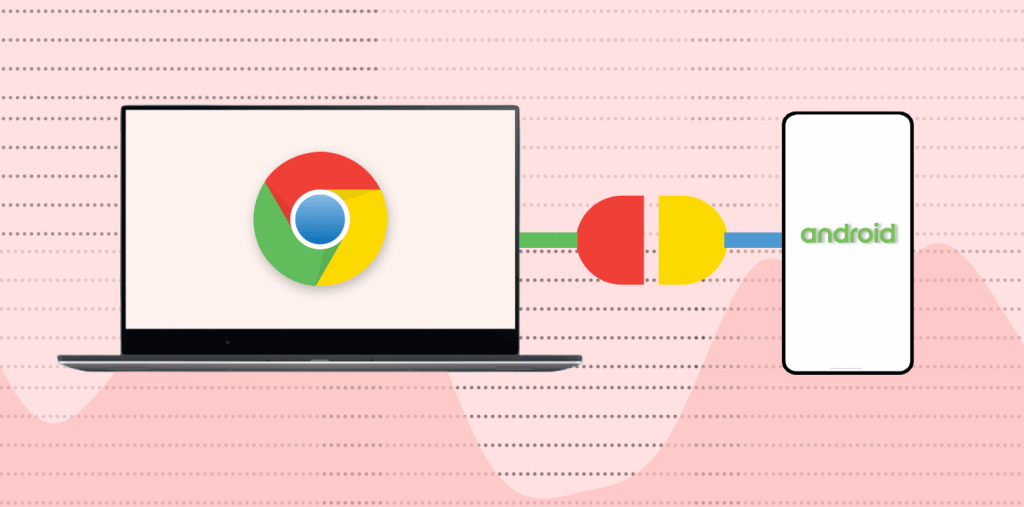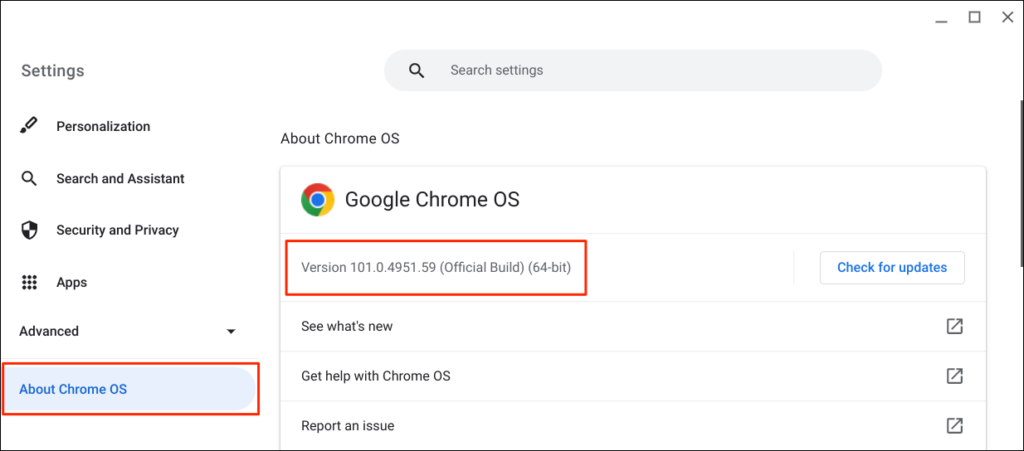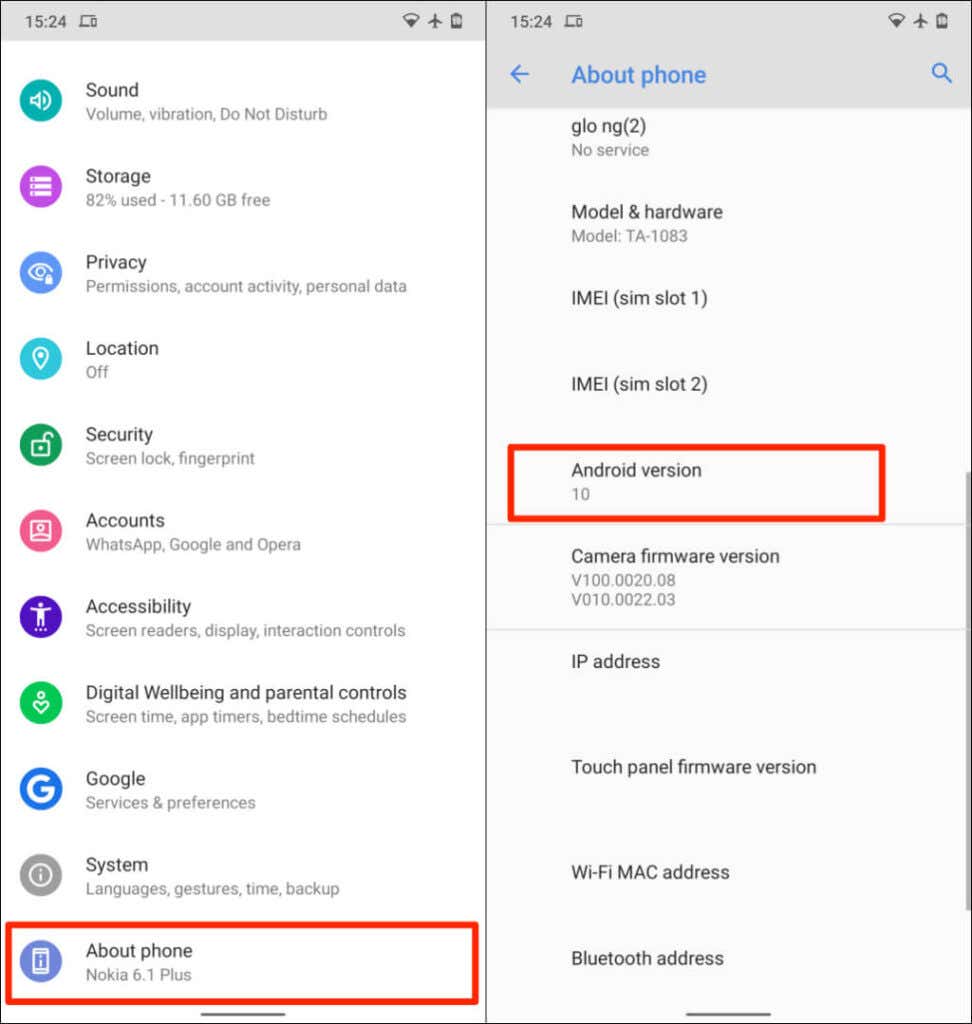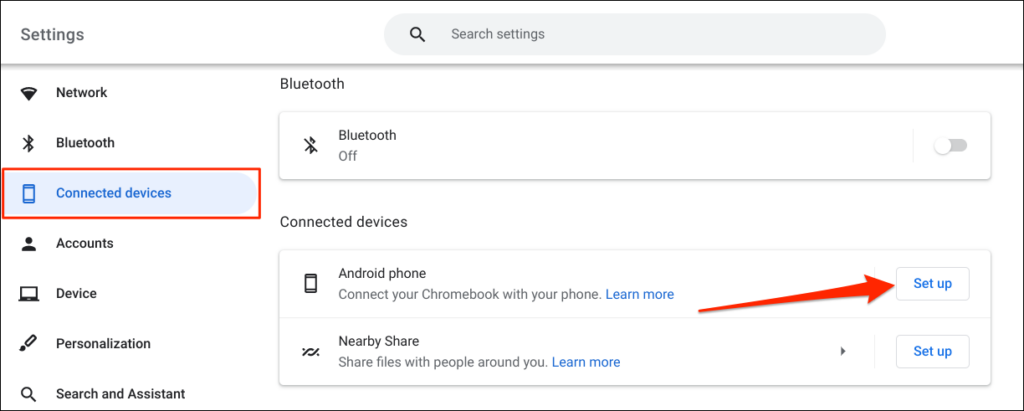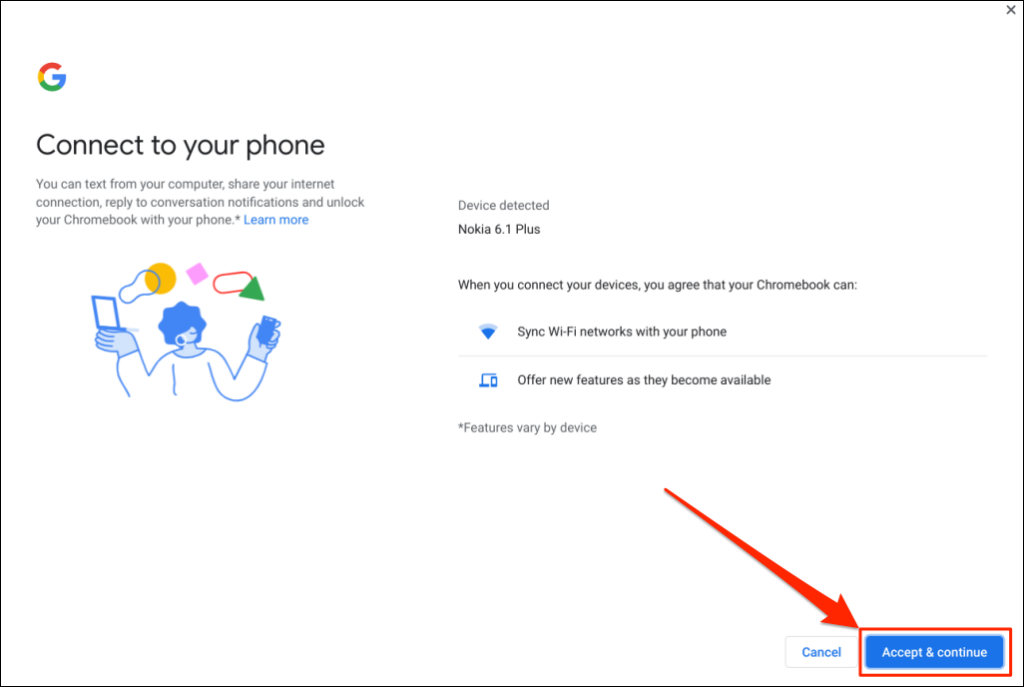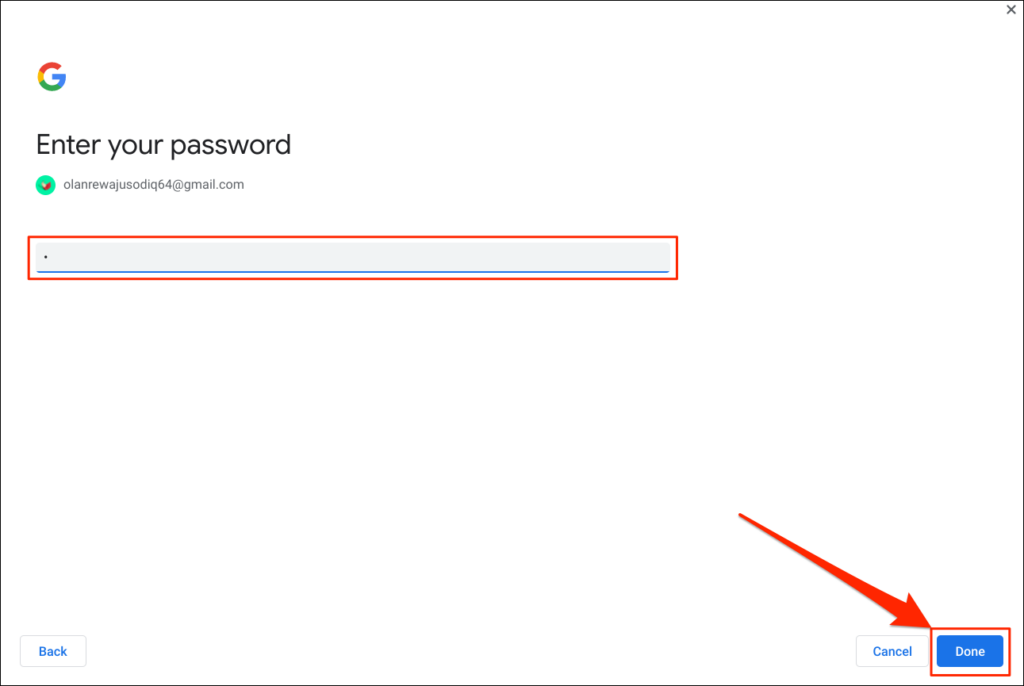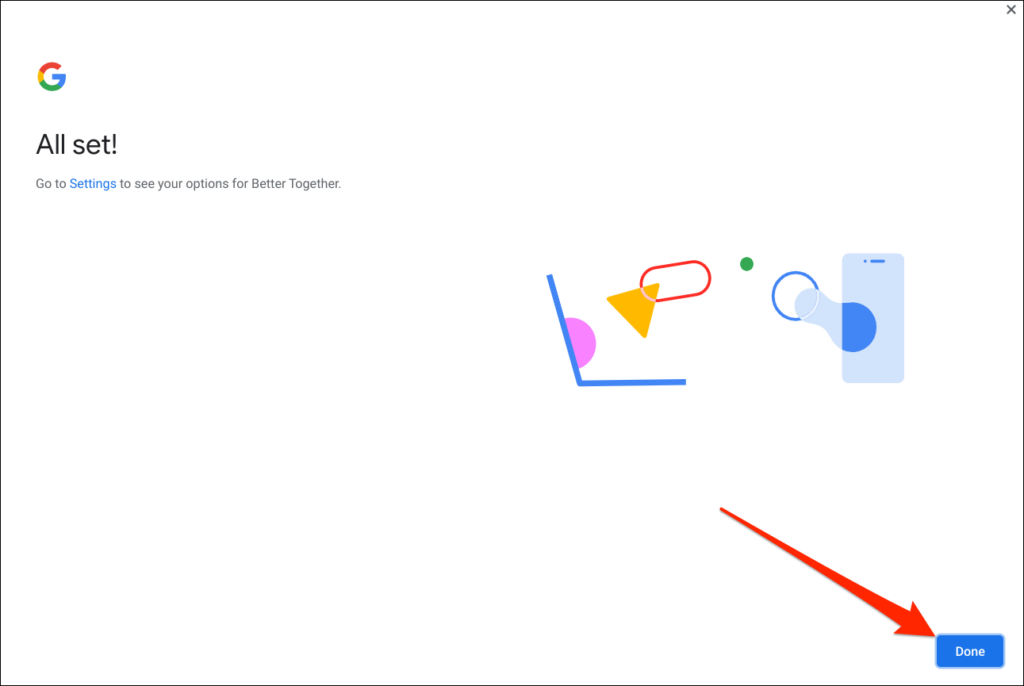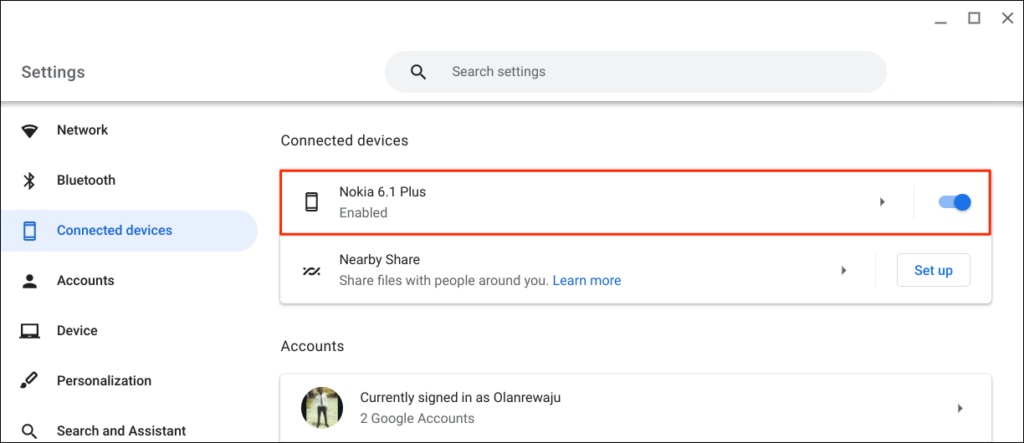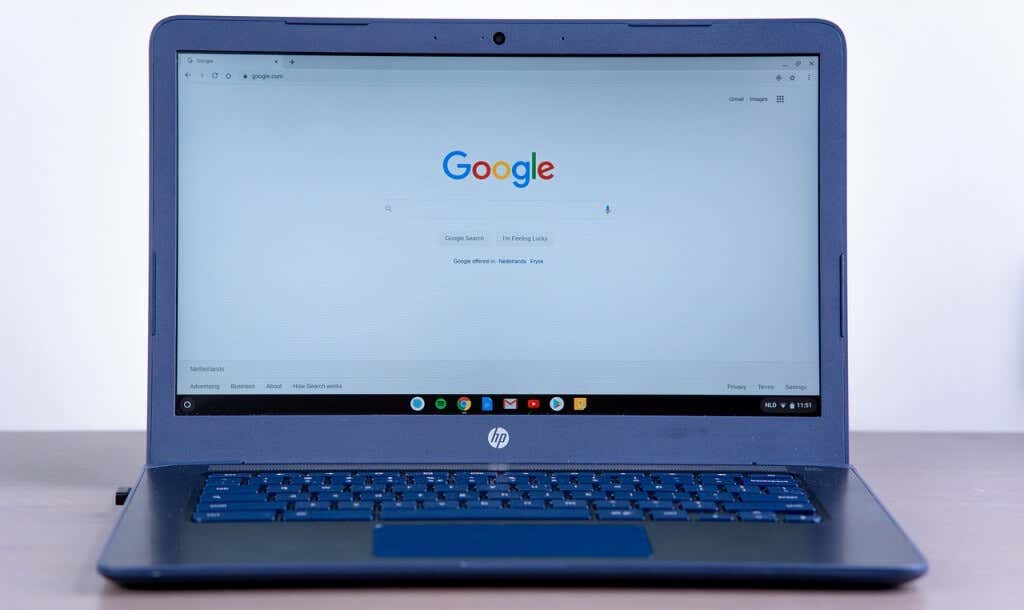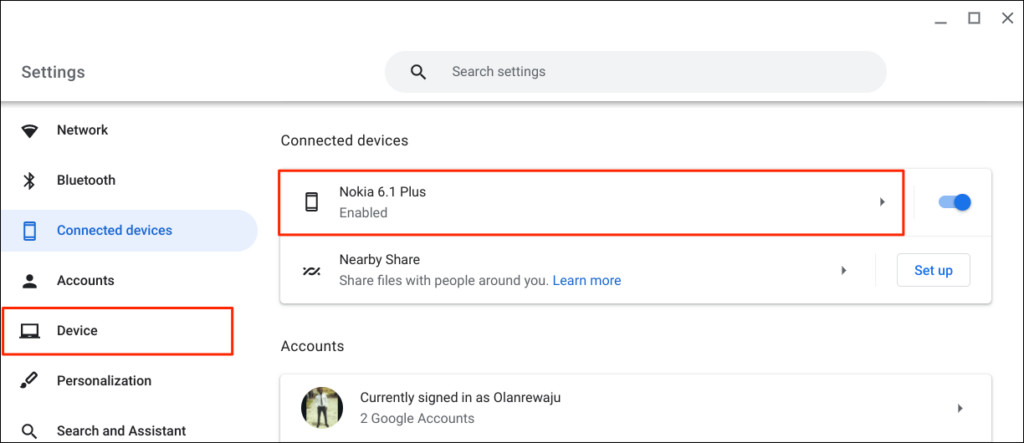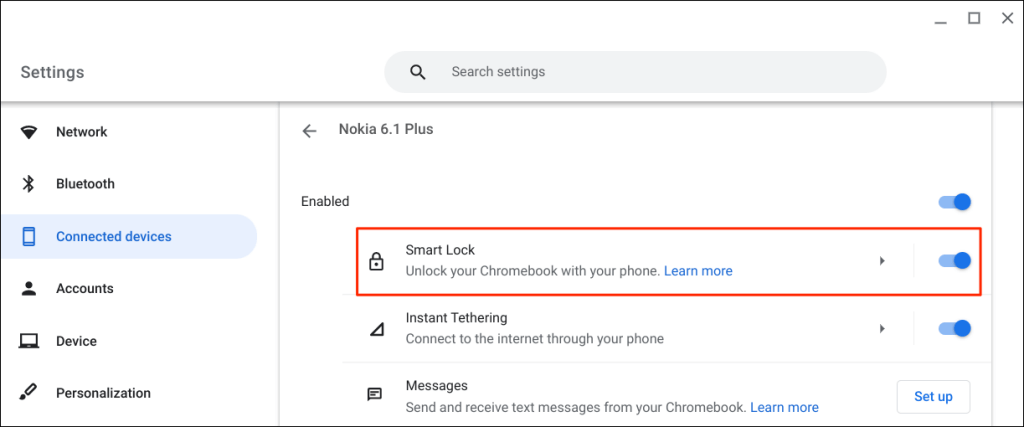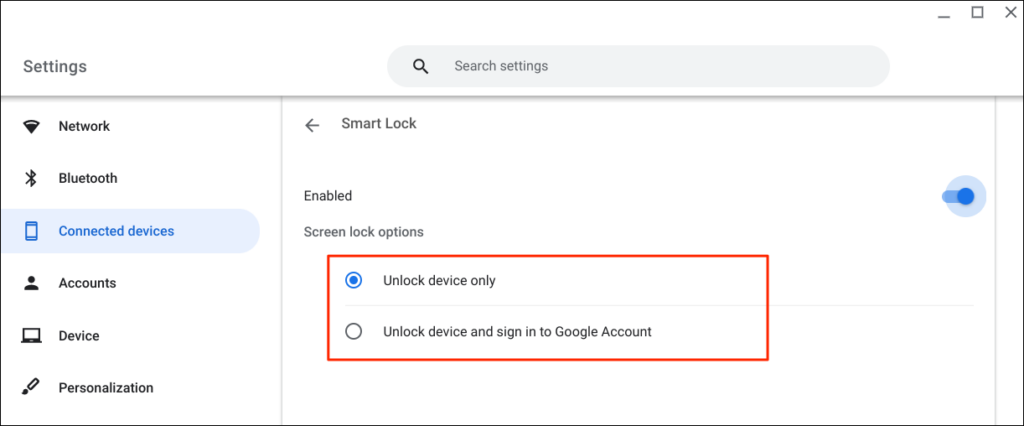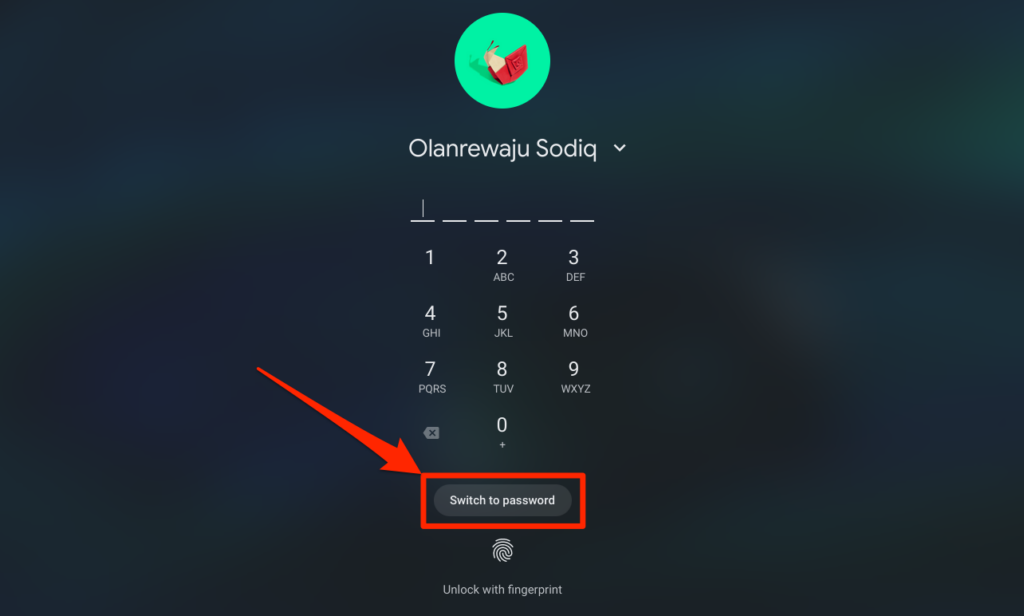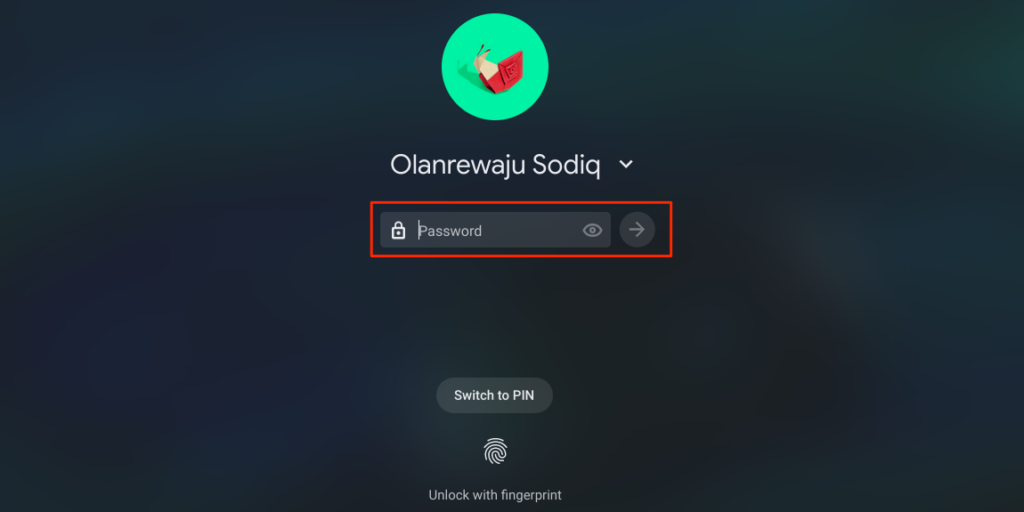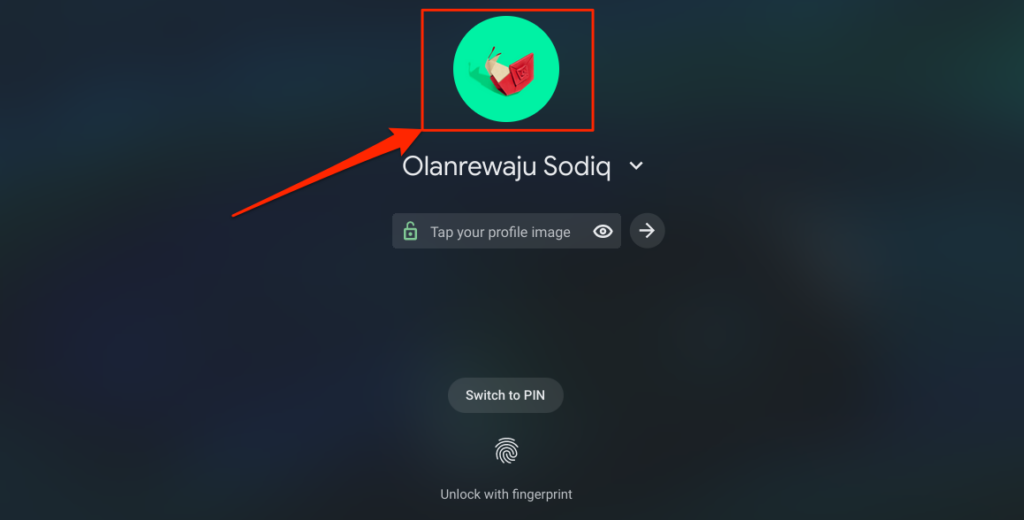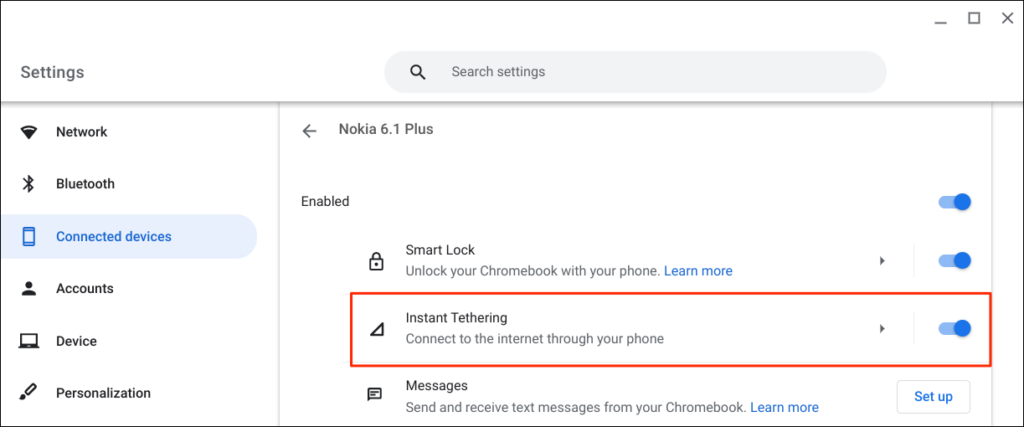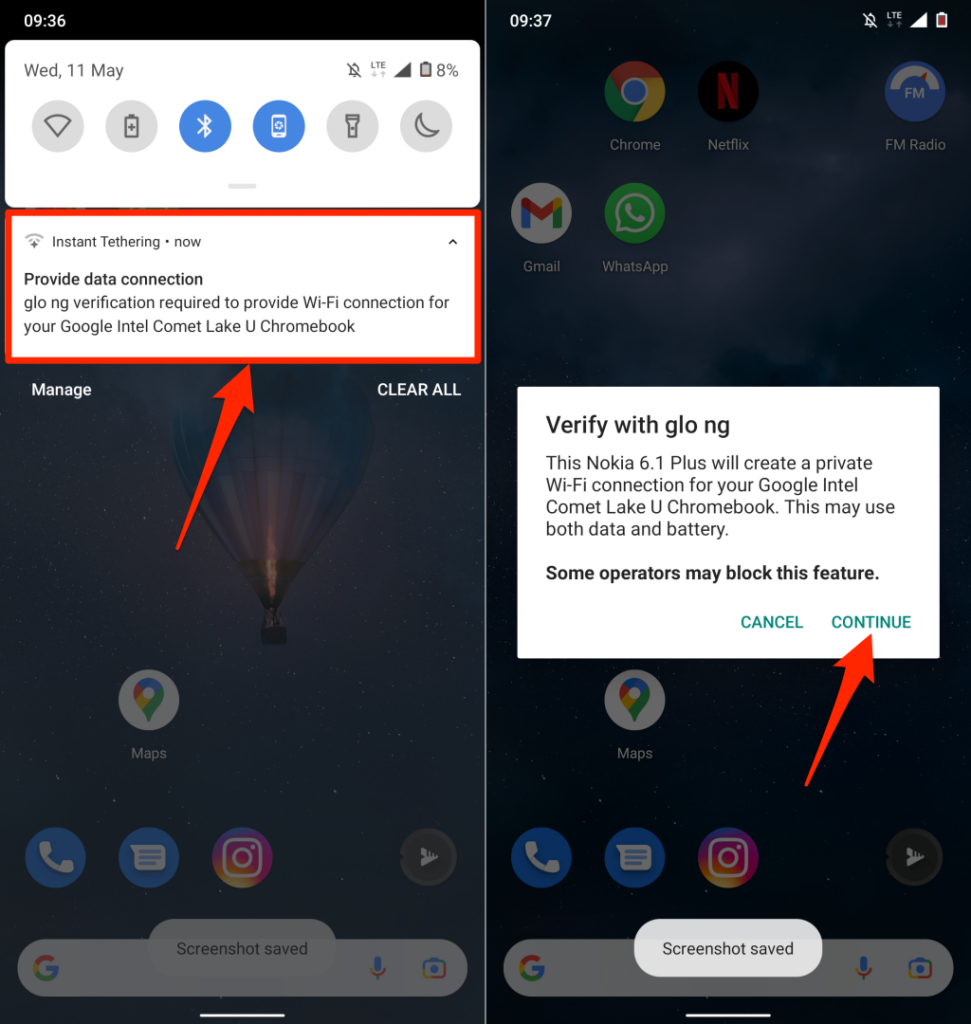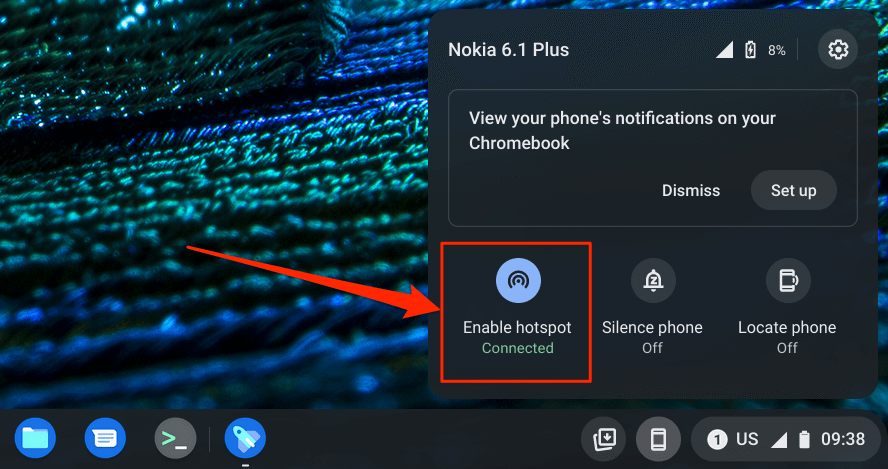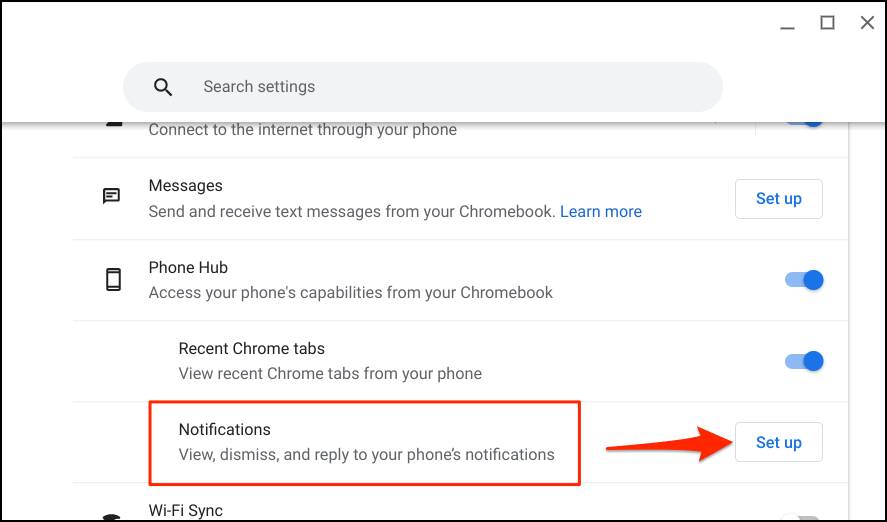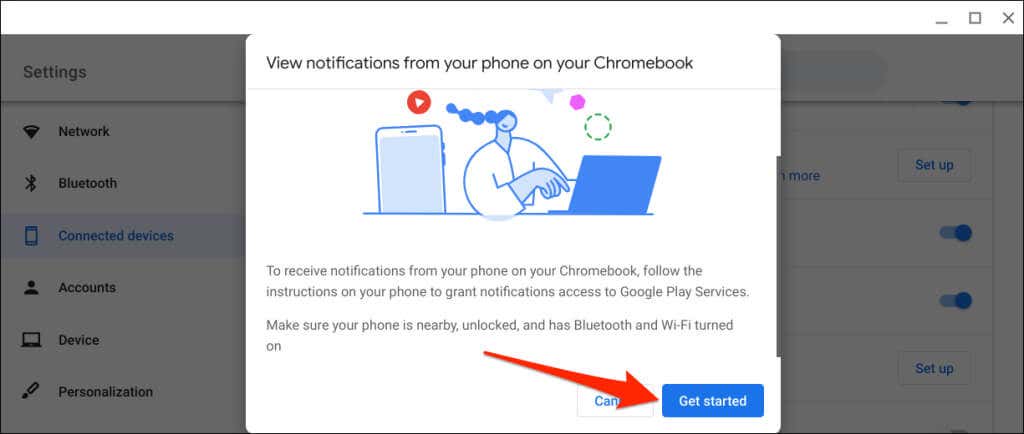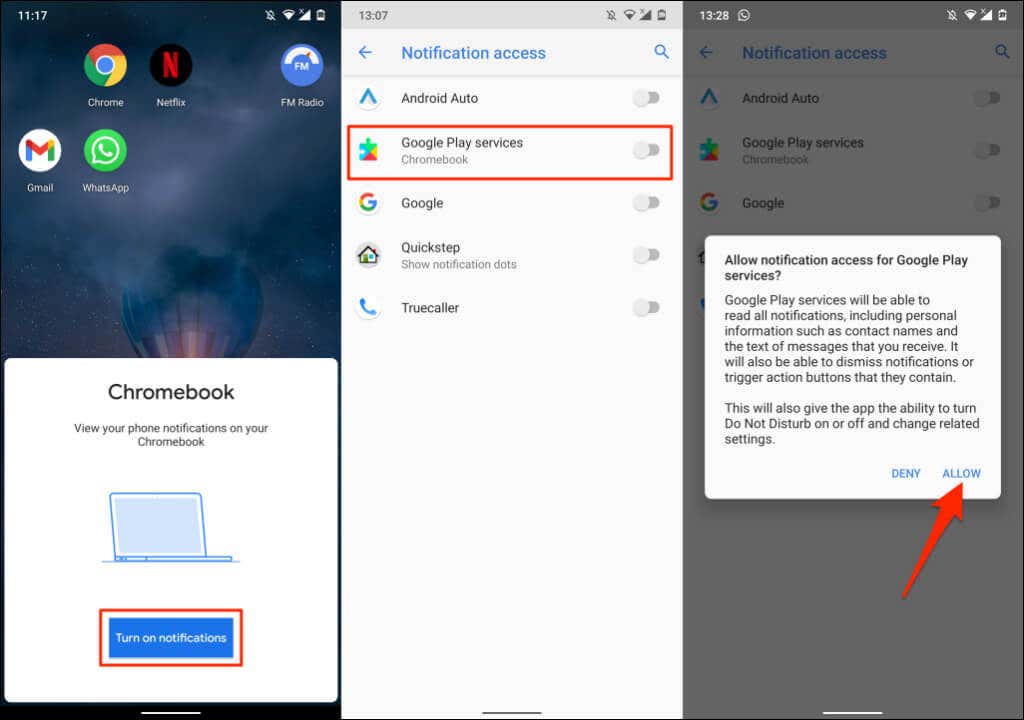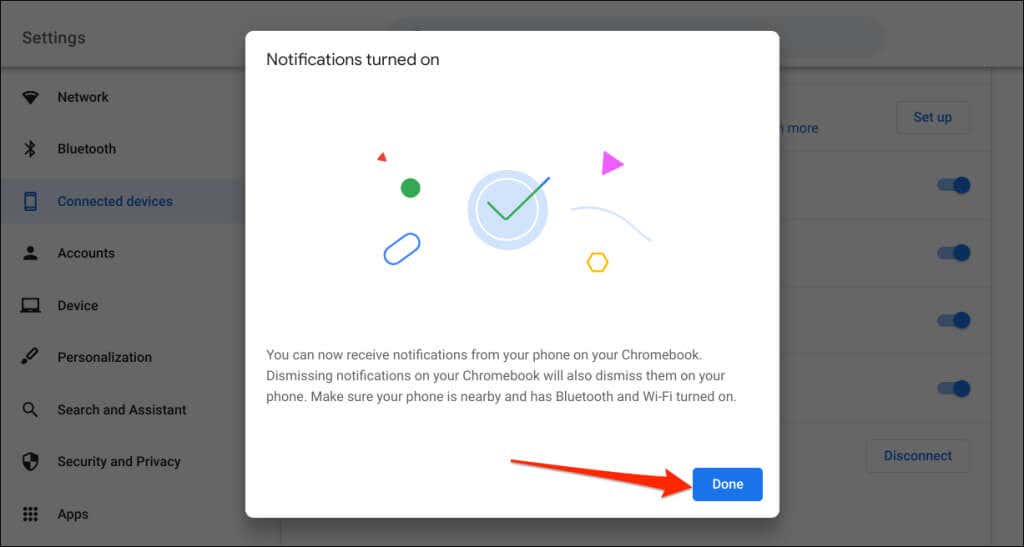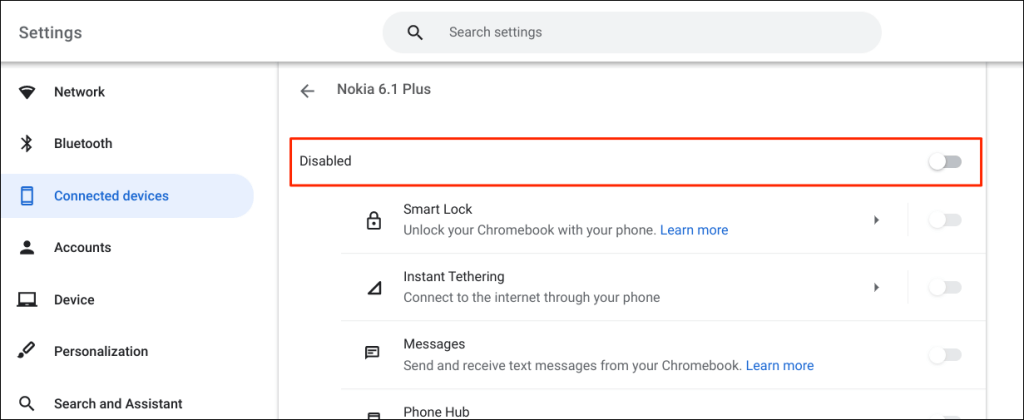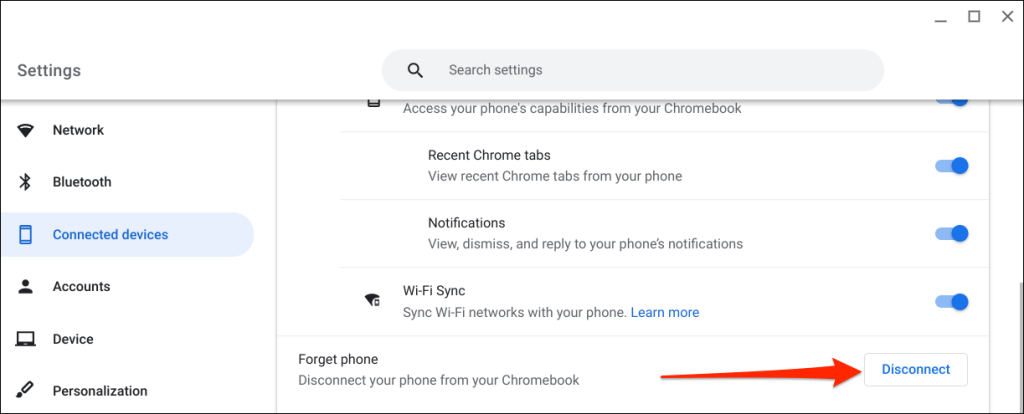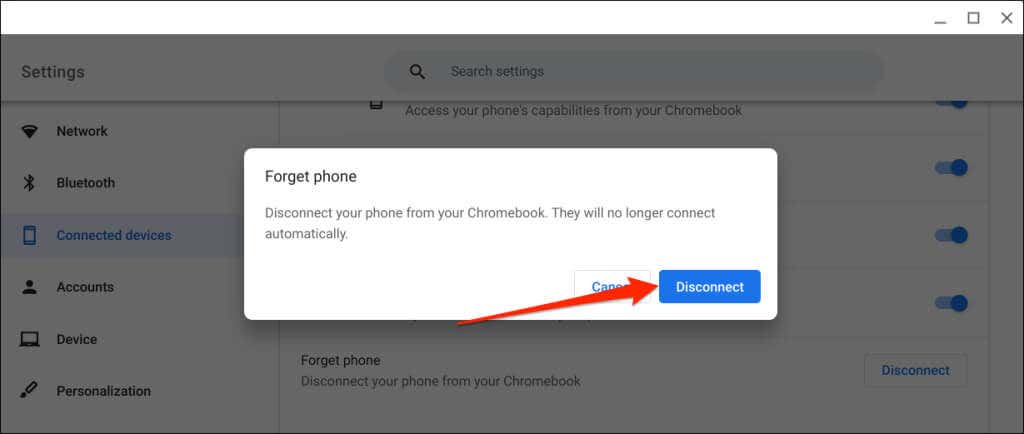This tutorial covers the steps to setting up Phone Hub on Chromebook. You’ll also learn how to use Phone Hub features on your Chromebook.
Phone Hub Requirements
Exchanging and syncing information on devices in the Apple ecosystem (iPhone, iPad, MacBook, Apple Watch, Apple TV, etc.) is easy. This is because the same company designs its operating systems (and hardware). Chromebooks and Android smartphones run operating systems (Android and Chrome OS) developed by Google. So, connecting both devices is equally easy—as long as they meet the OS requirements. First, Phone Hub works on Chromebooks running Chrome OS v71 or newer. So, head to Settings > About Chrome OS to check your Chromebook’s operating system version. Additionally, your companion Android phone must be running Android v5.1 or newer. Go to Settings > About phone and check the “Android version” row for your device’s operating system. The final requirement is that you must link your Chromebook and Android phone to the same (personal) Google account. Note: You may be unable to connect your Chromebook and Android phone if either device uses a work or school Google account.
How to Set Up Phone Hub on Chromebook
Linking your Android phone and Chromebook is an easy process. Open your Chromebook’s Settings app and follow the steps below: If multiple Android phones are linked to your Google account, select your preferred device and choose Accept & continue. Your phone is now linked to your Chromebook. So you should get a notification on your phone to that effect. Likewise, a phone (Phone Hub) icon will appear in your Chromebook’s Status Bar—the bottom-right corner of the screen. It’s a quick settings menu for accessing Phone Hub features and managing your Android phone. If the Phone Hub icon doesn’t appear in the Status Bar, enable it in the settings menu. Go to Settings > Connected devices, select your phone, and toggle on Phone Hub. You can remotely find your phone, check battery life, and put it on silent from the Phone Hub shortcut. Ensure your devices (Chromebook and phone) have an internet connection. Problems can delay the verification and linkage of both devices. Some features may not be available until your devices connect to the internet.
Use and Customize Phone Hub Features on Your Chromebook
Launch your Chromebook’s Settings app, select Connected devices on the sidebar, and ensure your phone is “Enabled.” Next, tap your phone to set up Phone Hub features. “Smart Lock” lets you sign in to your Chromebook or Google account without a password or PIN. “Wi-Fi Sync” shares your Chromebook’s Wi-Fi networks and settings with your phone and vice versa.
Unlock Your Chromebook Using Smart Lock
New generations of Chromebook have fingerprint sensors for effortless authentication. Typing PINs and passwords to unlock Chromebooks (without fingerprint sensors) can be stressful. Hence, you should set up Phone Hub and use the “Smart Lock” feature. Enabling Smart Lock allows you to unlock your Chromebook using your Android phone. You don’t have to enter your Chromebook’s PIN, password, or fingerprint unlock. We’ll show you how to unlock your Chromebook using your Android phone. Make sure your phone is unlocked, close to your Chromebook, and has Bluetooth enabled. Likewise, make sure Bluetooth is enabled on your Chromebook. Alternatively, select or tap the phone icon in your Chromebook’s Status Bar and select the gear icon. Now you can unlock your Chromebook using your Android phone. The next step is to “activate” Smart Lock by signing in to your Chromebook using your Google account password. Lock your Chromebook (press Search + L) and select Switch to password on the lock screen. When Smart Lock is enabled and activated, you should now be able to unlock your Chromebook with your phone.
Automatically Share Your Phone’s Internet with Chromebook
You can tether your Chromebook to the internet using your phone’s mobile or cellular data network. Select the phone icon in your Chromebook’s Status Bar and then choose Enable hotspot. Alternatively, go to Settings > Connected devices, and select your phone. Next, tap Instant Tethering, turn it on, and select your phone again. Depending on your mobile network provider, you should get a notification on your Android phone to allow hotspot tethering to your Chromebook. Select Continue again on the confirmation prompt to proceed. Open the Phone Hub shortcut menu in your Chromebook’s Status Bar and check the “Enable hotspot” status. If it reads Connected, you can proceed to use your phone’s internet on your Chromebook.
View Phone Notifications from Your Chromebook
You can view, read, and dismiss your phone’s notifications from your Chromebook. Unlock your phone, enable Bluetooth and Wi-Fi, and follow the steps below to set the notification synchronization. Henceforward, notifications from your phone will appear in the Chromebook’s Status Bar when your phone is locked.
Disconnect Your Chromebook and Phone
You should disconnect your Chromebook and Android phone if you sell or give away either device. If you wouldn’t be using Phone Hub features for a while, (temporarily) disable your phone instead. That’ll stop all Phone Hub features until you re-enable your device.
Explore Phone Hub
There’s much more you can do with Phone Hub on your devices. For example, you can send and receive text messages on your Chromebook without picking up your phone. There’s also an option to view recent Chrome tabs (open on your Chromebook) from your phone. If you’re having issues using Phone Hub, update your phone and Chromebook’s operating systems to the latest version. Restarting your devices can also resolve connectivity issues.
